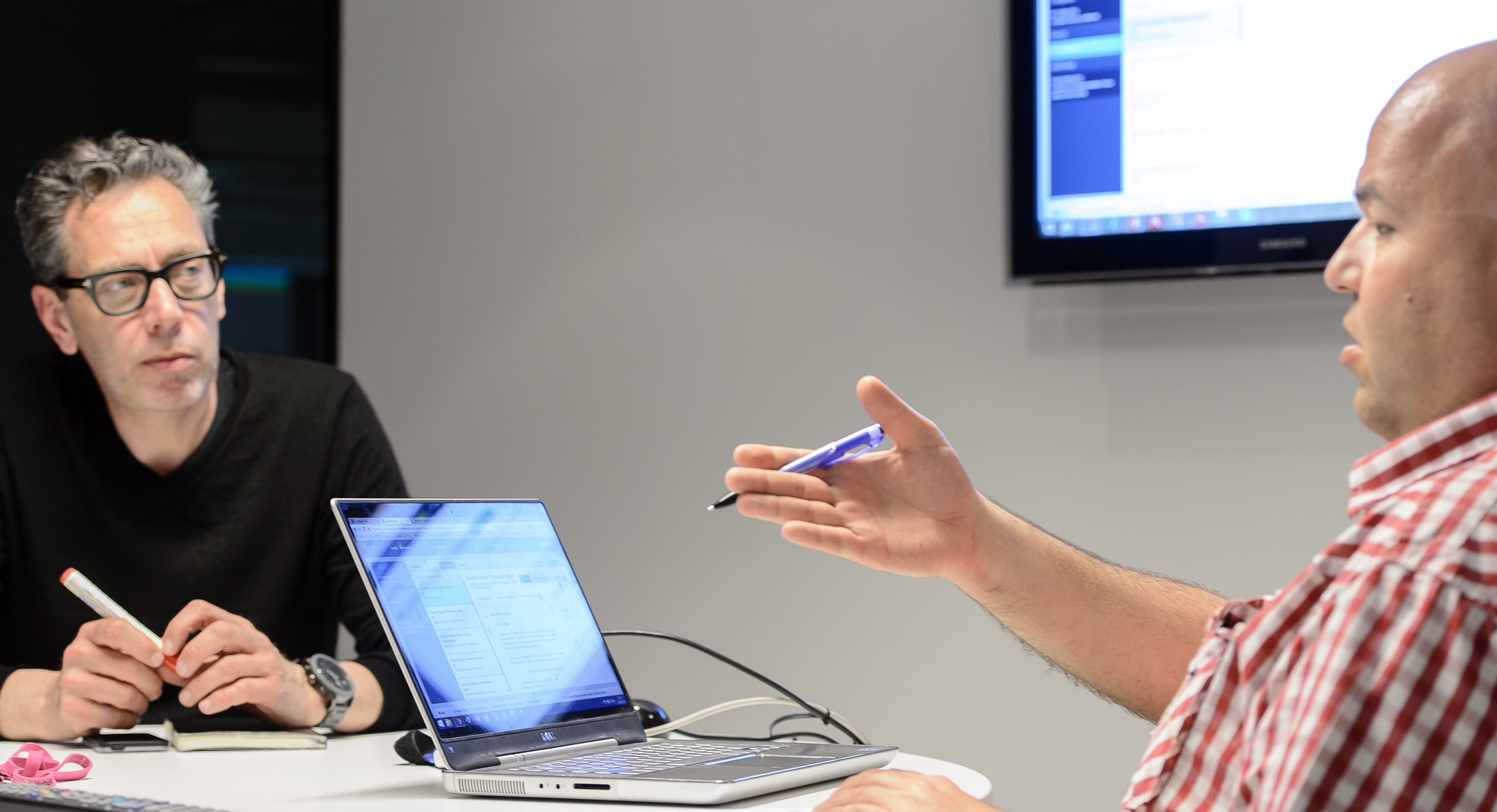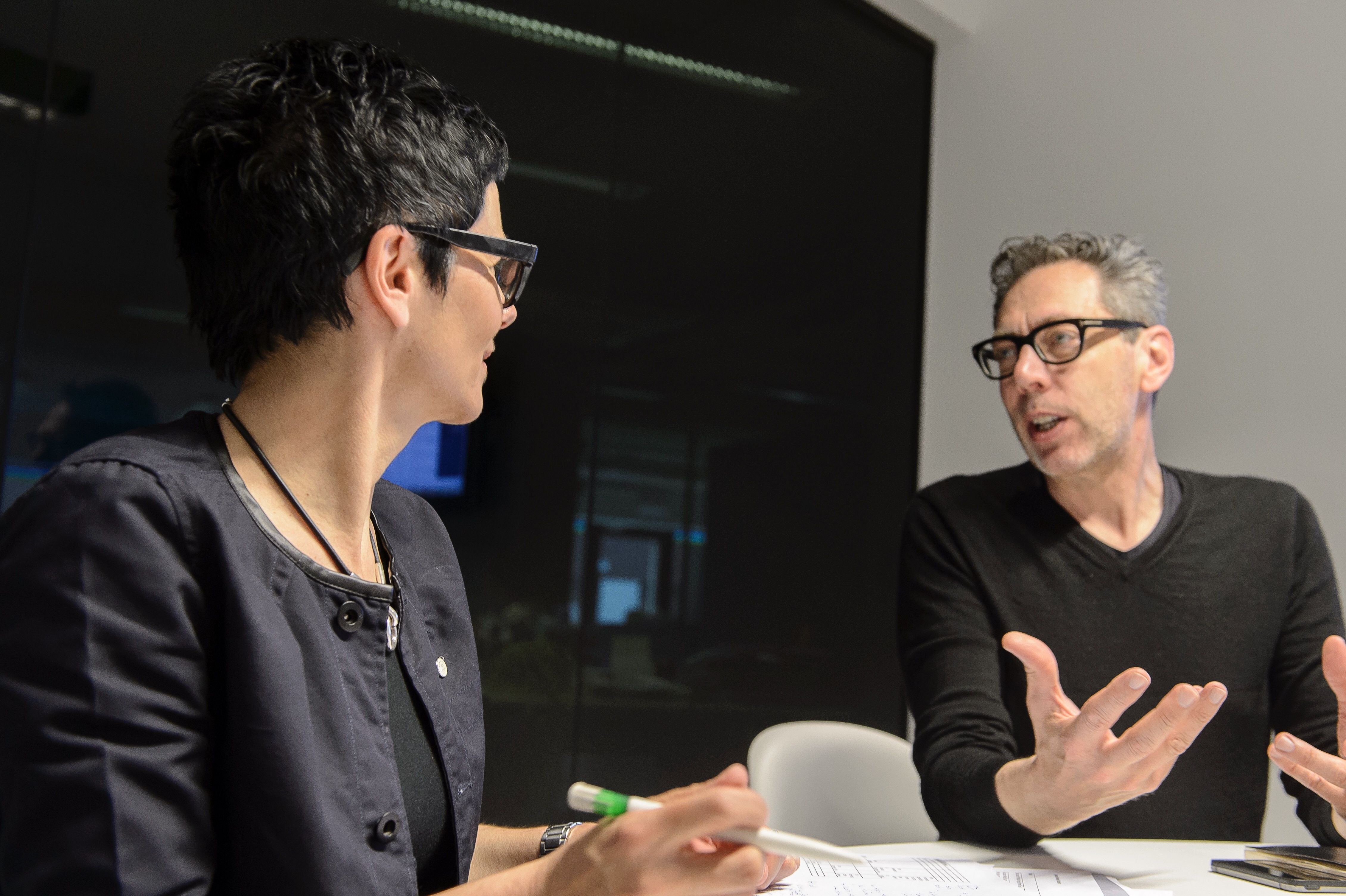
10 Mistakes I Made As A Consultant And What You Can Learn From It
.jpg?width=56&name=francescorizzato8%20(1280px).jpg)
Let me open with a J.K. Rowling quote:
It is impossible to live without failing at something, unless you live so cautiously that you might as well not have lived at all - in which case you fail by default. (J.K. Rowling)
In my journey as a consultant, I've been struggling and making quite a bit of mistake.
My hope with this post is that you will walk away having gained some knowledge of what NOT to do while growing your own consulting business. Learn from my struggles and mistakes, and establish yourself as a visible authority more efficiently without having to go through these same struggles.
Mistake #1 - Time Strategy
Until I was able to solve my' time strategy' (as I always call it) and cut back 20-30% of operational time, I have been struggling hard to develop my visible authority consistently.
As I've stated in this previous blog, managing my time was a significant source of struggle for me in my early consulting years.
Some of my main bottlenecks to cutting out deliberate time to grow my visibility included the lack of:
- marketing automation (automated lead generation)
- a well-organized CRM (to correctly follow up client requests, proposals, sales talks,...)
- a coherent content strategy, based on the (validated) pains of the clients
- a disciplined content calendar to plan the writing and the social media publishing well in advance (and to better coordinate my external experts with the support, e.g. social media follow-up)
As a result, I often worked late at night, during the weekend, or between essential meetings. My content creation - the heart of building visibility & authority - was scattered and inefficient. Looking back, I believe I could have saved 1 to 2 years in getting to a much stronger visible authority in my expertise domain.
Mistake #2 - Positioning/Niche
I should have chosen 'my lane' (my narrow niche) faster (to accelerate my visibility) and should have been tougher on myself for not leaving 'the lane', in my early consulting years.
Narrowing the expertise to be able to grow the visibility (you can't build authority as a Jack of all trades) was a difficult step for me as it is for most consultants.
Scaling down to grow is a scary thing, I know. It requires courage and discipline.
I was worried about having enough money at the end of the month to process payroll for the team. I was concerned about disappointing existing clients by not accepting a non-fitting project they requested. I was worried that saying' no' to potential clients would result in lower revenues. I wanted to be able to help everyone and show how smart and capable I was.
My advice to every consultant: learn to 100% commit to your carved-out niche and don't deviate from it. Get a coach to help you to stay in your lane (as I did, see the next topic).
The #1 rule for success is focus. Do less. Pick one thing and do it 100%. Don't let anything distract you. Say no. Say no. Say no. (Ev Williams, founder of Medium)
Mistake #3 - Hiring a Coach
I should have booked a permanent coach (or accountability buddy) much faster, much earlier in my consulting career to keep me on track when leaving my lane (and protect the narrow niche from achieving visibility & authority much quicker).
Having a coach gave me a second set of eyes on my ideas, a devil's advocate to make sure I thought through all the aspects of a decision, and objective feedback from an outside party without bias.
Having a coach helped me stay focused on achieving my ambitious visibility objectives and also allowed me to maintain a more balanced life where work and play (in my case, competitive mountain bike training) could reside together.

Picture: balancing work and life: competing in the merciless Cape Epic mountain bike 8-day stage race in South Africa in 2019
While it's easy for me to get stuck in the weeds of my business, my coach helped me keep an eye on the big picture and measure my growth overall rather than getting stuck in the details.
During the eight iNostix startup years, I got the support of two coaches (and they are both supporting me again now with thevisibleauthority.com):
1) a growth hacking coach who helped me with the technical setup and global online visibility of my content and expertise.
2) a business design coach who helped me with my positioning on the market, the development of my target group messaging ('my voice', see below), and the design of the startup business concept.

Picture: Coaching session with my growth hacking coach Vladimir
Mistake #4 - Listening to Clients
I did too much telling what I was able to do for clients (here's is our consultancy offering). Instead, I should have listened to their specific pains (being able to explain what value I could bring to solve the problem of the clients, with the help of my expertise).
I would tell the clients how good we were and how our offerings were exclusive to the new market niche. My ego was fueled by feeling unique and cutting-edge, but this approach didn't take my clients' needs into full consideration.
To develop deep expertise and authority in your domain, you'd better understand the specific pains of your clients and make sure you re-validate those pains regularly (pains evolve!).
Listening is such a simple act. It requires us to be present, and that takes practice. We don't have to advice, or coach, or sound wise. We just have to be willing to sit there and listen. (Margaret Wheatley)
To pick the right lane quickly for my new business (TheVisibleAuthority.com) and ensure I could solve the actual problems my clients were having, I immediately hired external specialists. They interviewed my target clients to find out what their exact pain points were and what my proposed services could do for them.
Mistake #5 - Ideal Clients
I didn't focused enough on winning ideal clients. There's a big difference between clients and ideal clients! I never had this on my radar screen until I started the see the significant differences. This 'ideal-client-understanding' took me way too long.
In this blog, I am telling the story of a client who invited me for a meeting. It was one of those many meetings where I sat in front of the 'buyer' with a printed stack of my case studies on the client's desk.
She had been 'studying' my content for 6 months, she told me. And after the usual 10 minutes' welcome chit-chat', she gave me the go-ahead for one of the most rewarding projects I've ever done. Amazing!
This project, with this HR Director, was born out of having openly shared all my learnings. That's what the client told me, at least.
The collaboration 'pitch' (the meeting in her office) was nothing more than a friendly handshake to get started right away. That's the reward of openly (and massively) sharing valuable content!
She was the IDEAL CLIENT. No need to explain, persuade, sell, or negotiate. She knew what she could/would get and she trusted my expertise.
Mistake #6 - Entrepreneur or Consultant?
I should have strived for a better (and much faster) balance between being an entrepreneur (making money) and being a consultant 2.0 (openly sharing expertise to build visibility and trust).
Not finding such a balance can create wrong behaviors (too much focus on selling) and reduced the speed of becoming visible in the market.
If you're growing a consulting business, you are both consultant and entrepreneur, whether you like it or not.
Being an entrepreneur is all about figuring out your ideal business model, defining your target clients, developing your offering, calculating the best possible pricing, implementing systems and processes, hiring and managing a team, and ultimately making money.
"An expert is a person who has made all the mistakes that can be made in a very narrow field." (Niels Bohr)
Being a consultant is all about listening to your client's pain points and offering your expertise, support, care, help, and putting the 'you' in your service.
As I've already explained, I consistently invested 20-30% of my time building my long-term visible authority. When you are under pressure to achieve the short-term revenue targets, cutting out time for marketing with a long-term perspective is not an easy thing to consequently continue.
Mistake #7 - My Voice
I didn't decide on 'my voice' quickly enough and that would have helped me tremendously to build 'content assets', to strengthen my positioning, and to grow visibility and trust. Once I got 'that voice' (with the help of my coach, see picture below), I was able to build reliable results (here's an overview of those results) with my visibility as the backbone.
I've experienced first hand that many consultants are struggling to translate their (technical) expertise into 'a voice' that is easily understandable to their target audience.
The right voice creates a much deeper connection with your potential clients as they will understand what and who you are standing for.
Our job as consultants is to ensure we are top of mind - the first specialist that a client calls when they need help. (Will Bachman)
When I started TheVisibleAuthority.com in 2019, I took 3 full-time months together with my coach to define 'the right voice': my message, my content, my learnings I wanted to share, the style I would follow, etc. And I will review 'my voice' at least once a year and update my content as a result (if necessary).

Picture: Coaching session with my business design coach Sabine
Mistake #8 - Pattern Seeking
I didn't have enough specific focus (and fast enough) inconsistent and deliberate 'pattern seeking' (see another blog, my so-called 'glorious loop to heaven') during my project work to deepen my authority (read 'pattern detection') faster.
Pattern detection is the backbone of your authority progress. It would help if you fully grasped the details, the background, the context, the relationships, the characteristics, the frequency, the volume, the typical stakeholders involved, etc. of the critical pains of your target clients (in your narrow market).
Without a narrow focus, you will never get to a high degree of authority because the narrow focus is needed to propel the repeatability of projects, the driver of pattern detection.
Today, I am obsessed with 'pattern seeking' as the backbone of my expertise and I spent a substantial amount of time with my current clients to help them with understanding this critical component of authority progress.
Mistake #9 - Simple Scaling
I didn't focus enough on 'simple scaling', driven by my visible authority, e.g., high ticket personal coaching of CHRO's, setting up exclusive client Masterminds, advising on strategic roadmaps & executive alignment, exclusive diagnostic services, etc.
Most consultants, if at all with a narrow focus (the first step in developing authority), still spend most of their time providing fully customized services/projects. Customization - although it can be a differentiation factor - is a time killer at the same time.
That's why I teach consultants to deepen their authority 'by staying upstream' as much as possible: packaging their expertise into 'a strategic system' and to price it as a premium diagnostic service — upstream being strategic versus downstream being operational support.
I will continue to write about this (upstream) scaling topic shortly. Make sure you subscribe to the blog to stay in the loop.
Mistake #10 - Client validation
I've been too much driven by 'what I could do' for clients instead of asking for validation. That's what I did now, starting with my new thevisibleauthority.com business: I immediately hired external client validation specialists. I sincerely believe in using experts to avoid personal bias and too much subjectivity.
Seek first to understand, then to be understood. (Stephen Covey)
They interviewed a sizeable group of experienced consultants in 2019 about their specific growth pains to understand if my new service (helping to grow their business by transforming them into visible authorities) could be a good fit for them. Together with them, I developed a detailed client persona, which I am now using to develop my valuable content (answering the typical pains of consultants).
I should have done such formal validations (and probably also done by external specialists) way more often and with way more detail. There's so much learning in these in-depth validation interviews and you can't overlook your future buyers and their needs when developing your consulting offering/expertise/authority.
Conclusion
I started with a quote and I will end with a quote that got mentioned in one of my favorite writers on Medium (Anthony Moore). The title of Anthony's article says it all: 'You can only be truly successful in things you're willing to fail at'. In the article, he refers to Thomas J. Watson, legendary former CEO of IBM with this closing quote of my article:
Would you like me to give a formula for success? It's quite simple, really: double your rate of failure. You are thinking of failure as the enemy of success. But it isn't at all. You can be discouraged by failure or you can learn from it, so go ahead and make mistakes. Make all you can. Because remember, that's where you will find success. (Thomas J. Watson, former IBM CEO)
Interested in receiving all my learnings to become a better consultant? No spam, no BS. Pure teaching! Subscribe to my newsletter.
.jpg?width=66&name=francescorizzato8%20(1280px).jpg)
Luk’s extensive career in the consulting business, which spans more than 20 years, has seen him undertake a variety of influential positions. He served as the European CHRO for Nielsen Consulting (5,000 consultants in the EU), founded iNostix in 2008—a mid-sized analytics consultancy—and led the charge in tripling revenue post-acquisition of iNostix by Deloitte (in 2016) as a leader within the Deloitte analytics practice. His expertise in consultancy performance improvement is underlined by his former role on Nielsen's acquisition evaluation committee. After fulfilling a three-year earn-out period at Deloitte, Luk harnessed his vast experience in consultancy performance improvement and founded TVA in 2019. His advisory firm is dedicated to guiding consulting firms on their path to becoming high-performing firms, drawing from his deep well of consulting industry expertise and financial acumen.

